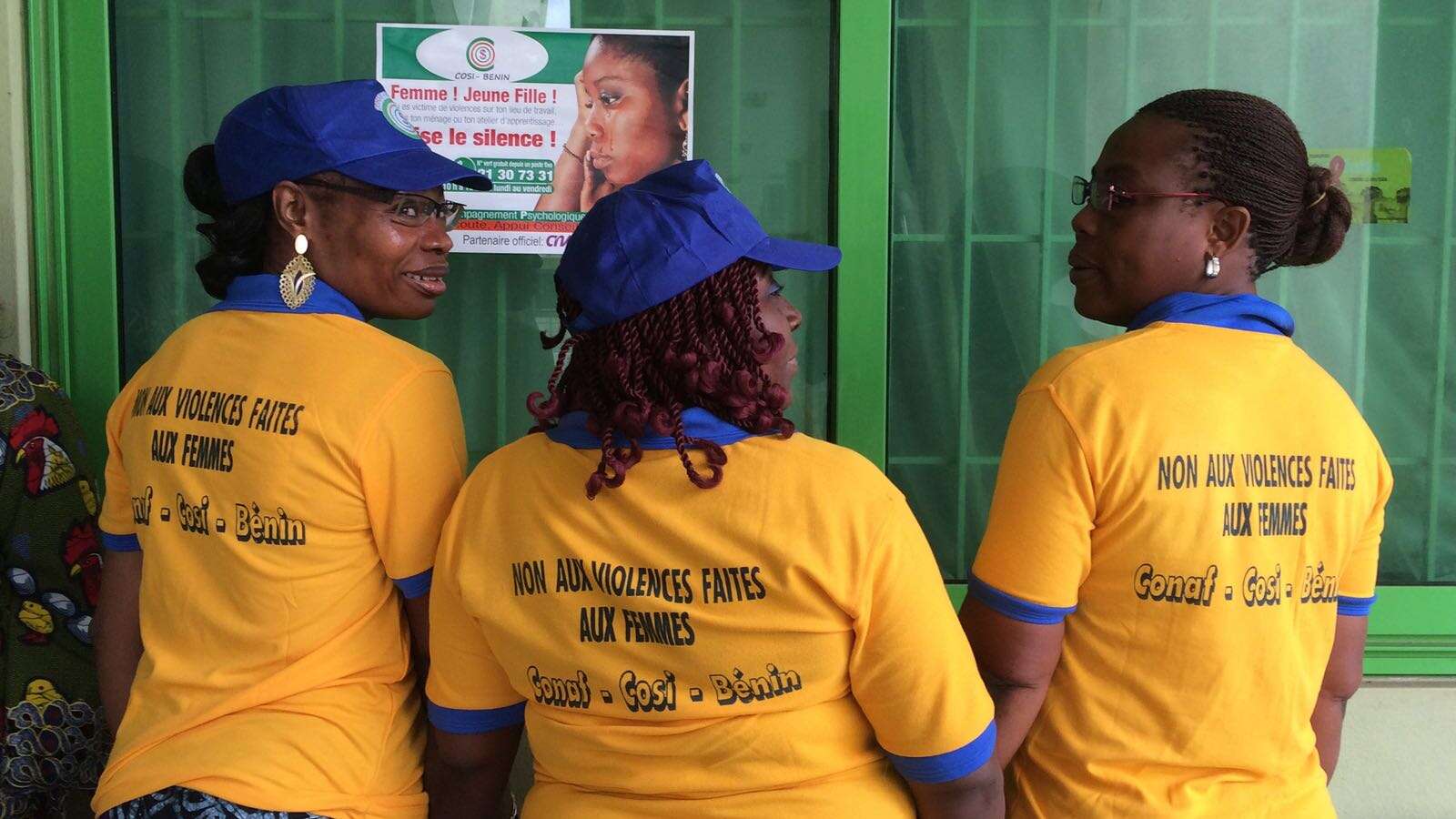Violence against women at work is still one of the most horrendous forms of human rights violations in the area of labour. Women who suffer this type of violence don’t tend to report it to authorities because they are afraid of repercussions. It’s a difficult subject to talk about. What if the perpetrator is your boss?
CNV Internationaal would like to see better international legislation so this problem can be tackled at an international level. We support trade union activities which strengthen the position of women at work.

In addition to facing economic discrimination (like wage gaps), women all over the world also face physical and verbal forms of violence and psychological intimidation. Things like suggestive remarks, assault, and rape. However, they are also often fired if they get pregnant, or they receive promotions in exchange for sexual favours. In countries like Guatemala, we see an increase in the most extreme form of violence, “femicidio”, the murder of women.
Investigations and prosecutions are often left unpursued and the legal cases that do exist aren’t processed with speed. In addition, victims of sexual violence at work often lack the knowledge and resources to take legal action.
Sometimes countries do have laws which victims of violence and intimidation can turn to. But unfortunately these laws usually don’t provide very much protection in real life scenarios.

Gender and unionisation
Garment workers are predominantly women (in Asian countries an average of 70-80% of workers is female), often in low-paying positions with little power. However, they are under-represented in social dialogue structures. Ensuring the right to FoA and CB is vital in order to allow workers’ voices to be heard and support their bargaining power. Women often have lower rates of unionization and union leadership tends to be male; therefore, women’s rights issues may not be well represented or considered to be important priorities.
Companies around the world need to develop policy to define responsibilities in regard to respecting gender difference and promoting inclusivity. This is vital to reducing risks and negative impacts stemming from these issues.
Trade unions play an important role by giving attention to female leadership, negotiating better working conditions, and providing practical support such as special help lines.
CNV Internationaal advises and supports partner unions to prevent violence at work. Further, CNV Internationaal lobbies for increased awareness and international legislation.
CNV Internationaal works to strengthen the leadership positions of women in both the union movement and the workplace. Female role models are important when it comes to creating the cultural changes needed to eradicate violence at work.
In June 2019, the International Labour Organisation, ILO, made a binding agreement, #ILO 190. Agreements were made to protect workers against violence and intimidation at work. Member states who sign this agreement are obligated to legally prohibit violence and intimidation.
CNV Internationaal and its partner organisations lobbied and campaigned for many years to obtain such an agreement. The agreement is a real victory for the international trade movement.
Universal Declaration of Human Rights
International Labour Organisation (ILO) Agreements
The important aspects of gender equality have been established in various agreements of the tripartite UN organisation for labour, ILO, and have been ratified by many different countries. The most important conventions are as follows:
- 1951 (No. 100) Equal pay for men and women who do the same type of work
- 1958 (No. 111) Equal treatment in regard to work and employment opportunities
- 1981 (No. 156) Protection regarding workers with (domestic) care responsibilities
- 2000 (No. 183) Protection regarding pregnancy
- 2019 (No. 190) Protection against violence and intimidation at work
The ILO has been working on the Decent Work Agenda since 1999. It has become widely accepted as an important strategy in the fight against poverty and towards development. The Decent Work Agenda is included in the UN’s Millennium Development Goals.
UN Sustainable Sustainable Development Goals
The UN’s Sustainable Development Goals (SDGs) are based on gender equality and establish means for decreasing areas of inequality.
- SDG 5: Equal opportunities for men and women to make decisions in political, economic, and public areas of life.
- SDG 8: Advancement of fair work and inclusive economic growth.
- SDG 10: Inclusive economic growth, i.e., everyone should be involved and included.
Convention on the Elimination of All Forms of Discrimination against Women (CEDAW)
The UN Women’s Convention was adopted by The General Meeting of the United Nations on December 18th, 1979. The CEDAW requires states who ratify the convention to eliminate all forms of discrimination in their legislation and to ensure that all other parties (such as companies, political parties, etc) do not discriminate against women.
The UNDP Gender Equality Seal Certification
The UNDP Gender Equality Seal certification covers the moral values needed to create a more egalitarian work environment, to bridge difficult gender gaps, and to strengthen the position of women at work. At the same time, it improves productivity and competitiveness through social justice.
Downloads
Time for a world free from violence and harassment (2020) (ENG)Diversiteit in de top (2019) (SER)Research Violence against women at the workplace (2015)